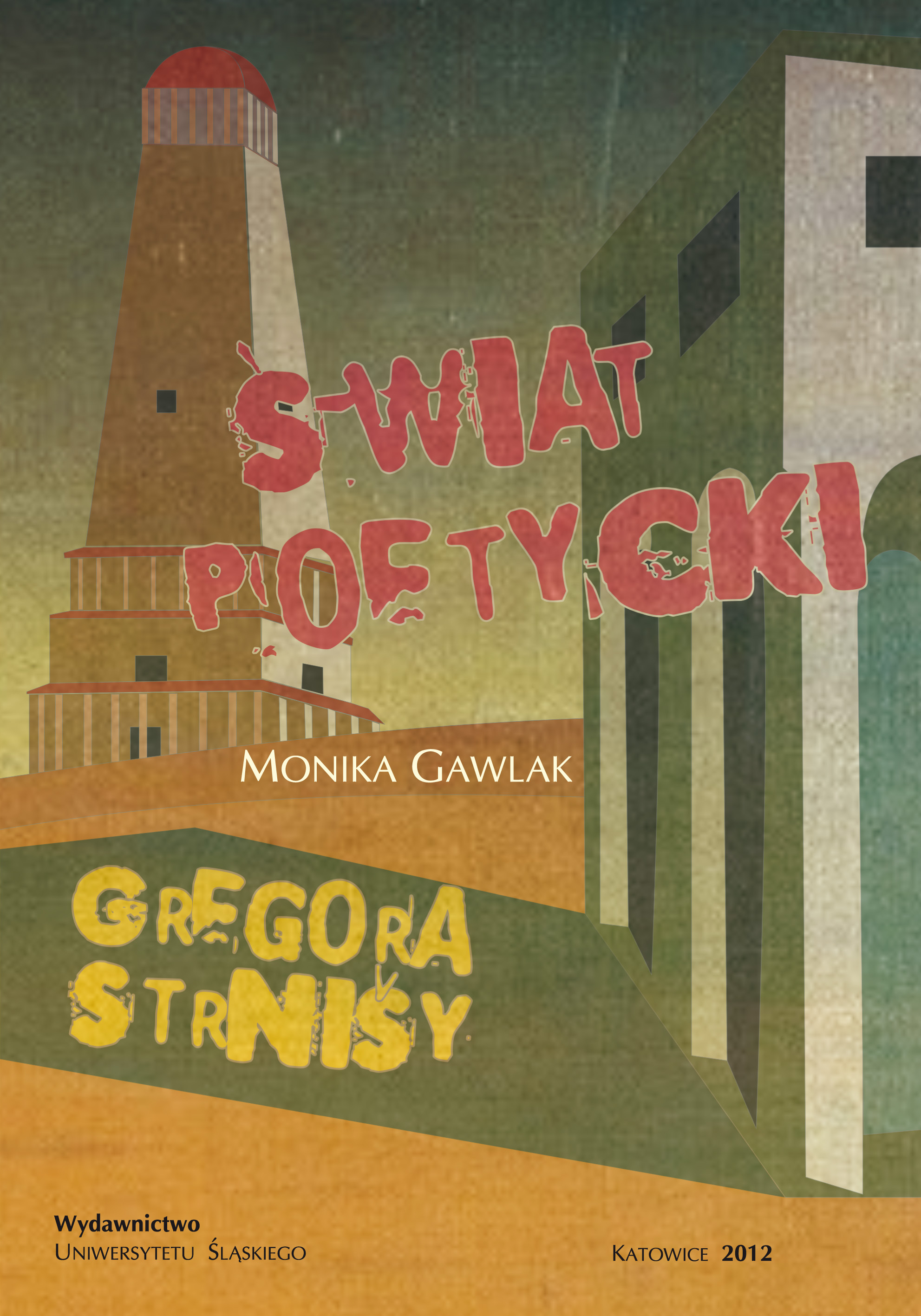Świat poetycki Gregora Strnišy
The poetic world of Gregor Strniša
Author(s): Monika Gawlak
Subject(s): Language and Literature Studies, Studies of Literature
Published by: Wydawnictwo Uniwersytetu Śląskiego
Keywords: Gregor Strniša; poetry
Summary/Abstract: The book tries to present the specification of that eminent Strniša’s poetry in an all‑embracing,complex way. The author points to the fact, that the value of Strniša’s works is to a large extent connectedwith the fact that they reflect his consequent process of constructing poetical philosophy.As a result, poetry becomes a peculiar inner world, which combines adversities within itself, showsthe existence of many dimensions within its limits, and at the same time transgresses its own limits.The poetry aims at reaching the phenomenon of a human being – on one hand a physical body,limited by space, though constructed of numerous elements dependent on one another, and on theother hand, a mental world characterised by constant openness, directed towards transgression.It is therefore close to Wolfgang Welsch’s ideas of transversality and transversal mind, along withthe search of unity and integrity of a subject, which tries to bring multiplicity and individualitytogether. The pursue of transversion (according to Welsch’s idea) and transgression appears to bean inseparable characteristic of a protagonist in Strniša’s poetry. The poetry aims at presenting thehuman being in a complex, thorough way, and points to the dependence between the man and theworld viewed either individually, or globally.Peculiarity of poetical works of the Slovenian author lies in a thematic circle, which can bereduced to three basic issues: human being, the world, transcendentalism. The poetry seeks thetruth about the world and about an individual; the truth which is an integral part of it (of the world,or of the individual), at the same time being a peculiar microcosm, which unifies various aspectsof reality in itself. Peculiarity of the poetry is defined by the philosophical worldview of the artist(logic of contradictions; transversality), his literary consciousness (autonomy of the poeticalworld) and aesthetics (phenomenologist aesthetics), which are expressed in the poems. The maincharacteristics of the poetry are: 1. Creating an analogical (alternative) world, in relation to the realworld, based on identity of being and consciousness of it, along with coexistence of contradictions.The reality created in this way corresponds to the surrealist idea of absolute reality – surreality, inwhich all the antinomies supplement each other, and different aspects (real, earthly, directly givenand spiritual, irrational and potential) of it coexist alongside and intermingle; 2. The use of knownforms of writing poems (such as, four‑versestanza, known also in folk poetry) in order to underlinethe relative harmony and value of tradition; 3. Considerable reduction of using rhymes, in thefavour of just one type of it – assonance, a fact which can be included in the poet’s worldview. Inasmuch,assonance gives wide possibilities of creating unique arrangements of sound associations,what also corresponds to the fact of the author’s creation of many multi‑dimensionalarrangementsof poetical reality; 4. Developed symbolism and metaphor of poems, which activates the extensiveliterary and cultural tradition; 5. Domination of metonymy in imagery, what (among other things)gives an effect of budding poetical worlds; 6. Tendency to use ekphrasis, for example, in the cycles:Sence and Stolpi, bringing to mind metaphysical paintings of Giorgio de Chirico; 7. High level ofphilosophical consciousness – his approach towards existentialism (Heidegger, Camus, Marcel),as a thought registering the symptoms of decomposition, in order to unite the world and the managain; 8. Belief in a holistic existence of the world, human being and universe.Strniša’s poetry still requires thorough intertextual and historical‑literaryresearch. The bookdoes not exhaust the topic fully, also due to the fact that the idea behind writing it was to createa more general work, rather than focusing on one particular phenomenon. Due to the fact that thereare no thorough monographic elaborations concerning Strniša’s poetry (along with the rest of hisoutput), there has appeared a need to get closer to the poetry in order to, among other things, indicateand describe the characteristics that make up for its distinctiveness, and that surely deserveseparate studies.
- E-ISBN-13: 978-83-8012-544-5
- Print-ISBN-13: 978-83-226-2114-1
- Page Count: 200
- Publication Year: 2012
- Language: Polish
- eBook-PDF
- Table of Content
- Introduction

